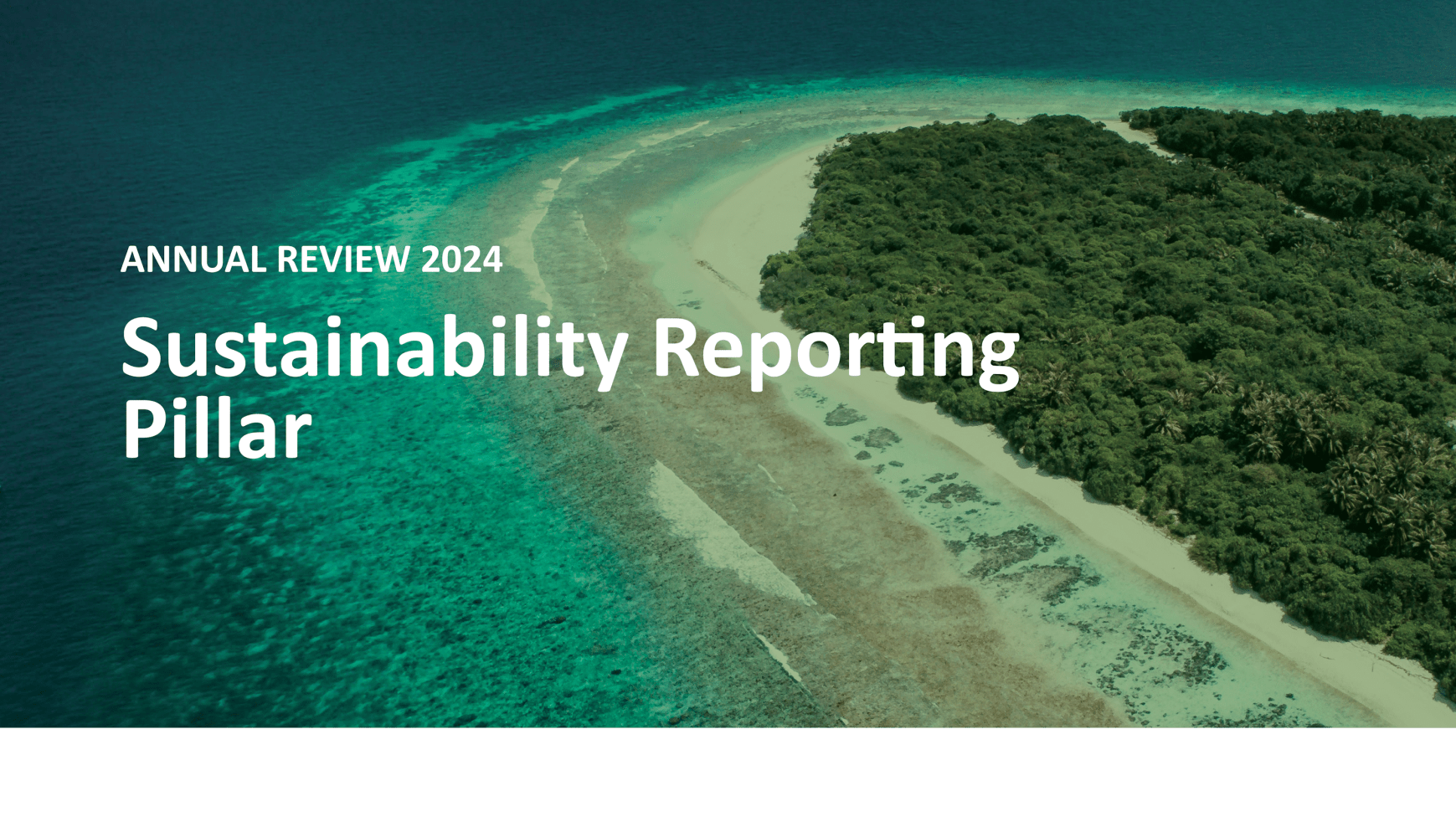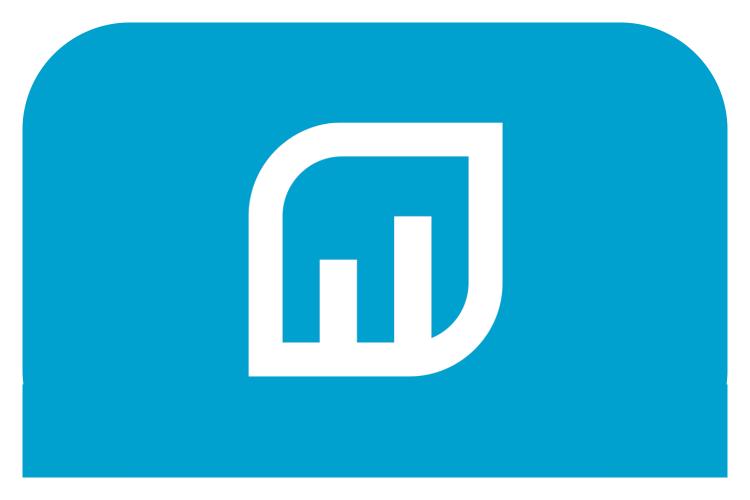Strengthening Europe’s Competitiveness Through Sustainable Reporting
By Patrick de Cambourg, EFRAG SRB Chair
As a consequence of major geopolitical challenges and in order to foster its capacity to develop independently and in line with its specific internal and international interests, the European Union decided in 2024 to place additional and critical emphasis on the competitiveness of its economy, while reaffirming the importance of achieving its Green Deal and sustainable development objectives. The Draghi report constitutes a milestone in this regard.

In this context, every public actor needs to contribute, and EFRAG has expressed from the beginning its commitment to streamline to the maximum extent possible the sustainability reporting requirements under the mandate it has received to provide technical advice to the European Commission on European Sustainability Reporting Standards.
A corporate reporting system, be it financial or sustainability-related, should simultaneously provide reliable information to decision-makers, offer a view on the key factors of value creation moving forward, and be proportionate. Proportionality is indeed a fundamental feature of reporting, even if it is challenging to find the right balance in an area that is relatively new for many companies and where methodologies may still be under development. This is why EFRAG has immediately stated its availability to reassess the first set of standards adopted by the European Commission in July 2023, based on the wealth of experience stemming from their implementation by a first wave of companies. This is also why EFRAG has supported the proposal to place large companies of a smaller size under a different reporting regime.
Following the launch of its Q&A platform, EFRAG has been able to identify many of the most critical difficulties companies face when preparing their sustainability statements, and has provided useful explanations as well as issued Implementation Guidance on the key points. However, this has proved insufficient, and now, on the basis of the specific mandate received from the European Commission, EFRAG is dedicating the major part of its resources to the required proposal to simplify the first set of ESRS, in order to substantially reduce the burden on companies by focusing on the most decision-useful information.
The process we have adopted is evidence-based, and we are very pleased to note the very high number of respondents to our Call for Input for the Simplification of the ESRS. It will also focus on the information required under other regulations or frameworks in order to stimulate a consistent data environment. The timeline is tight; nevertheless, we are confident that we can deliver our technical advice to the European Commission before the end of 2025, as requested, since we observe real mobilisation of all stakeholders.
Beyond the revision of the standards to be applied under a mandatory regime, it is important to foster a robust ecosystem around sustainability. This is why EFRAG is proud to have adopted a draft simplified standard for SMEs, which was submitted to the European Commission at the end of 2024 following a rigorous due process. This VSME standard should be available for SMEs wishing to report on a voluntary basis, and can also serve as a basis for the voluntary reporting of large companies that will not fall within the revised scope of the CSRD.
2024 was the year for reassessing policy priorities; 2025 should be the year for implementing the needed simplifications!
EFRAG’s Commitment to Simplifying ESRS for Easier Application and Better Information
By Chiara Del Prete, EFRAG SR TEG Chairwoman
I am preparing these notes exactly when preparers have started to unveil their ESRS-compliant sustainability statement. ESRS reporting is now a reality, the benefits are visible, but as it was reasonable to expect, it is coupled with challenges lying ahead of us.

Looking back at what we achieved in 2024 in terms of ESRS implementation support, we received a constant flow of enquiries, which are for us an invaluable source of insight. We addressed more than two-thirds of the questions received and issued the first three implementation guidance documents covering materiality, value chain reporting, and information materiality. We also released a Study on Early Implementation of the ESRS to better understand how things were progressing in practice. Thanks to this, we gained a good understanding of the major challenges. And now, with the release of the ESRS reports, we have an invaluable source of information to enhance the standards.
From February 2025, we have re-oriented all our efforts towards the execution of the ESRS simplification mandate. Focus has been placed on decision usefulness, simplification of Double Materiality Assessment (DMA), reduction of data points - particularly qualitative - alignment with international standards, introduction of general reliefs and flexibility, readability, and understandability. These are the key levers of the ongoing work. To provide the necessary evidence, an unprecedented outreach effort has been put in place, starting in the last decade of April, with approximately ten workshops jointly organised with national standard setters from different European member states involving more than 100 companies; 15 workshops with business associations, civil society organisations, and financial users; and 40 one-to-one interviews.
EFRAG for SMEs
SMEs are the backbone of the European economy and are often subject to uncoordinated requests for sustainability data, reflecting the efforts of their business counterparts and lenders to transition towards a more sustainable economy. After two years of intense work and continuous dialogue with SMEs and their business counterparts, EFRAG issued the VSME in December 2024, a voluntary reporting standard for non-listed SMEs. With only 20 disclosures in total, the VSME allows SMEs to report proportionately on environmental, social, and governance issues. Important conditions for market acceptance of the VSME include the creation of online platforms, user-friendly calculators, and links to databases. This is reflected in EFRAG’s commitment to launching a VSME Ecosystem in 2025.
Cooperation with other standard setters to support interoperability
A milestone has been the issuance of the joint IFRS-ESRS interoperability guidance in May 2024, which illustrates how companies are able to comply with both sets of standards within the same report. Mapping guides have already been issued for the Taskforce on Nature-related Financial Disclosures (TNFD) and the Eco-Management and Audit Scheme (EMAS), and cooperation agreements with the CDP, the European Committee for Electrotechnical Standardisation (CEN-CENELEC) and other stakeholders will soon be announced. Finally, we have maintained constant dialogue with companies, users and other stakeholders involved in sector communities and the three Financial Institutions Advisory Panels, focusing on the challenges of evolving existing practices at sector level.
Thank you note
I wish to express my gratitude to the EFRAG SR TEG and the EFRAG SRB, to my colleagues in the leadership team, to all members of the Secretariat for their passion and dedication, and to all those who participated in our activities and consultations.

Geraldine Matchett
Chairperson, Greenhouse Gas Protocol (GHG) Steering Committee
At the Greenhouse Gas Protocol, we recognise EFRAG’s invaluable contributions to advancing global standardisation for GHG emissions accounting and reporting. To help ensure our continued alignment and collaboration, GHG Protocol is pleased to have EFRAG as an observing entity to our Independent Standards Board alongside other critical partners. As GHG Protocol updates its flagship suite of corporate standards, we remain committed to working with EFRAG to ensure our standards fit the needs of the European Sustainability Reporting Standards and that the ESRS continue to be informed by the latest GHG accounting approaches. This harmonisation between EFRAG and GHGP will help corporates progress in their accounting and reporting journey.
Facilitating the Implementation of ESRS
Implementation Guidance Documents
In 2024, we made significant progress in supporting the implementation of the adopted ESRS. Following a one-month period of intensive public feedback, EFRAG published three Implementation Guidance documents in May 2024, which allowed the preparers to address the most challenging areas of ESRS reporting: materiality assessment, value chain, and list of ESRS datapoints (which could form the basis for a data gap analysis or data collection exercise).
The implementation guidance documents were met with unprecedented interest, showing a strong demand for practical support in the implementation of ESRS. It also confirms the relevance and importance of EFRAG’s role in capacity building with regard to sustainability reporting in Europe. Building on this positive experience, in 2024, we worked on draft implementation guidance focused on transition plans for climate change mitigation, which aims to provide support in the efficient application of the ESRS requirements. The guidance aims at helping users and preparers gain a clearer understanding of the type of information and data to be disclosed in ESRS E1-1, along with the methodologies that may be used to derive that information. The draft implementation guidance was brought to a stable stage at the beginning of 2025.
At EFRAG, we remain committed to supporting stakeholders through various implementation guidance and are confident that it will positively contribute to the high-quality data present in the sustainability reports implementing the first set of ESRS.
Q&A Platform
The initiative to answer questions regarding the application of ESRS from preparers, users and other interested parties started at the end of 2023 and came into full speed during 2024. This resulted in over 800 questions received on the Q&A platform at the beginning of 2025. EFRAG published its first batch of explanations in January 2024, and updated it four times until November, when the “Compilation of Explanations” had in total 157 answers to questions asked by constituents. In December, another five questions considered urgent were released before the “quiet period” started, not to interrupt preparers in their work on the application of ESRS publishing their sustainability statement.
It is expected that the Q&A Platform work will resume once the ESRS have been revised based on the 'Omnibus' initiative and published as a 'new' Delegated Act. No matter how diligently standards have been drafted, preparers, their auditors and users will have questions regarding their application: EFRAG will continue its implementation support.
Interoperability Between the ESRS and Other International Standards
Strengthening Collaboration for Interoperability
EFRAG continues to drive interoperability in sustainability reporting through strong collaborations with key organisations. In partnership with the European Commission, EFRAG mapped the Eco-Management and Audit Scheme (EMAS) with the European Sustainability Reporting Standards (ESRS), simplifying corporate sustainability disclosures.
A Memorandum of Understanding with CEN and CENELEC has led to joint mapping efforts, which are set to deliver key publications in 2025 that align EMAS, the VSME, ISO 14001 and the ESRS. These efforts aim to ease reporting burdens for businesses across the EU.
In June 2024, EFRAG and the TNFD published a map showing strong alignment between the ESRS and the TNFD’s recommended disclosures, with all 14 TNFD disclosures reflected in the ESRS. Engagement with CDP has already demonstrated strong alignment between the CDP Questionnaire and ESRS E1, with continued efforts being made to map additional standards.
Regular meetings support ongoing collaboration with key partners – namely the ISSB on climate transition plans and SASB Standards, the GRI on sector standard development, and the TNFD – to ensure updates on nature-related disclosures.
EFRAG entered into a cooperation agreement with the Taskforce on Inequality and Social-related Financial Disclosures (TISFD) in September.

Engagements with the former Transition Plan Taskforce led to EFRAG’s participation as an associate member of the International Transition Plan Network on climate transition plan disclosures. Additionally, EFRAG has been recognised as an observer on the GHGP’s Independent Standards Board and maintains an open dialogue with the SBTi, the SBTn and SEI to explore future collaboration.
While keeping up with a fast-moving sustainability landscape is challenging, EFRAG highly values the relationships built and the insightful exchanges had with colleagues from other organisations. Looking ahead, EFRAG remains committed to fostering partnerships that enhance interoperability, reduce reporting complexities and support a streamlined, efficient sustainability reporting landscape.
Empowering SMEs
VSME (EFRAG Voluntary Standard for Non-Listed Micro, Small and Medium-Sized Enterprises) – A Relief Tool Based on Market Acceptance
In 2024, EFRAG worked intensively to finalise the EFRAG VSME, the voluntary standard for non-listed SMEs. In January 2024, we launched the public consultation on the EFRAG VSME Exposure Draft for a four-month feedback period. In parallel, we also launched extensive field tests, asking preparers and users (i.e. SMEs business counterparts, mainly financial institutions and large corporates heading supply chains) to test the EFRAG VSME, either by producing a mock-up sustainability report or by simulating it. Quite impressively, we had 164 participants, with 70 SMEs opting for the more challenging task of preparing a sustainability report based on the VSME (the vast majority being micro- or small-sized), and 41 choosing the simulation. During the 14 field test workshops we held in the spring with both users and preparers, we had very constructive discussions and collected insightful feedback. It has been an incredibly useful learning process, helping us identify the data points that were considered most difficult by the preparers, as well as those deemed most useful by the users.
We engaged in about 15 outreach events that we either organised, co-organised or participated in. It was amazing to see the degree of interest and participation. We have participated in both online and in-person events across various EU geographies. One important contribution to facilitate the involvement of national stakeholders has been the effort of national bodies to translate the VSME ED into several languages.
We had more than 330 participants in the public consultation in addition to the field test participants, bringing the total to about 500 total responses that we carefully analysed. We received precious material to identify the changes to take to the VSME ED. The strong overarching messages that we received and integrated into the final EFRAG VSME were:
The VSME’s success depends on its availability as an online platform supported by tools (GHG calculators, geolocation) and the VSME ecosystem;
The deletion of the Narrative-PAT module that was challenging due to its narrative judgmental nature and limited comparability. The disclosures on practices, policies and future initiatives have now been simplified via a semi-narrative tabular approach; and
The removal of the materiality principle from the VSME and its replacement with the ‘if applicable’ concept by specifying the circumstances that trigger disclosures. In the post-consultation, we also had additional workshops with banks and SMEs.
On this basis, EFRAG SR TEG and the EFRAG SRB revised and approved the final version of the VSME, which consists of two modules, the Basic and the Comprehensive Modules, with a total of 20 disclosures mostly focused on metrics.
We were proud to send our technical advice to the European Commission on 17 December 2024. The full package includes the VSME Cover Letter, the VSME Standard, the VSME – Basis for Conclusions, EFRAG’s Cover Letter and Cost-Benefit Analysis (CBA) on VSME, and the feedback statement from the public consultation. Each of these documents provides valuable insights to better understand the VSME. The Cost-Benefit Analysis, for example, provides interesting projections on potential users and incentives. In addition, we have produced educational videos, which have received positive feedback for helping to make the VSME Standard more accessible.
Following the delivery of the VSME Standard, we launched the VSME ecosystem, which will run until the end of 2025. As part of this, we have established a new EFRAG SME Forum and revitalised the VSME community. We have begun work on additional support guides, including the VSME digital template and XBRL, examples for VSME Disclosures C2 (practices, policies, and future initiatives to be used in a dropdown menu), examples of GHG reduction targets and climate transition plans (Disclosure C3), and examples of actions taken to address severe negative human rights incidents (Disclosure C7).
In addition, we are planning a series of outreach activities in 2025 to promote uptake of the VSME and will develop further educational videos. We will also map digital platforms that serve as aggregators of preparer and user sustainability data, digital support tools (e.g., GHG calculators), and other relevant initiatives supporting SME sustainability reporting, in order to build an inventory and foster convergence.
In short, 2025 is shaping up to be another dynamic year for the VSME at EFRAG.
LSME – A Simplified and Proportionate Standard for Listed SMEs, Small and Non-Complex Institutions and Captive Insurance Companies
What could be more complex than the task of simplifying an existing standard while maintaining a balance between proportionality of requirements, consistency of content, and compliance with the provisions of a European directive?

We initiated the LSME journey in December 2022. Two years later, following numerous public meetings with EFRAG SR TEG and the EFRAG SRB, outreach events with a wide range of stakeholders (such as SME representatives, companies in scope, NGOs, etc.), and a public consultation, the draft Standard was approved by EFRAG SR TEG in November 2024. This indeed marked a technical milestone, considering the challenges scrutinised during the two-year drafting period. However, the LSME saga is not over yet. Like in the best thrillers, there was an element of surprise. For the LSME, this came from variables outside the technical standard-setting sphere, including a changed geopolitical context, which prompted a revision of the CSRD that defines the content of the Standard itself.
But let us rewind the tape and briefly summarise the background and previous episodes.
EFRAG has the mandate to develop the ESRS for SMEs that are public-interest entities, small non-complex credit institutions, and captive insurance and reinsurance companies.
Between November 2022 and February 2023, EFRAG established the methodology and general approach (the so-called ‘decision tree’) for defining the content of the LSME. On one hand, the decision tree defined steps to simplify the standards for large companies (as included in the Delegated Act of July 2023); on the other hand, it ensured that the Standard preserved elements of fair presentation and information quality. Finally, the decision tree also ensured that the content avoided unfair treatment of investors compared to the information they receive from large companies.
In terms of structure, the LSME Standard has a simplified architecture compared to the ESRS for large companies. The content of the 12 ESRS in Set 1 has been rearranged into one stand-alone Standard with six sections.
Following public discussions with EFRAG SR TEG, the EFRAG SRB, the LSME Community and Expert Working Group, and outreach events conducted with multiple stakeholders (around 40 meetings in total), the LSME Exposure Draft was issued for a four-month public consultation, from January to May 2024. The Exposure Draft’s feasibility was also assessed through a field test with preparers and business associations.
During the consultation period, 68 respondents provided feedback via the online questionnaire, 21 stakeholders submitted comment letters, and 30 companies participated in the field test, sharing their views on the feasibility of the requirements and the costs of disclosing the relevant information.
The analysis of the consultation and field test feedback revealed significant concerns from several stakeholders about the complexity of the Exposure Draft and its ability to reflect the proportionality principle, as well as the limited resources of the undertakings in scope.
In light of this feedback, EFRAG SR TEG and the EFRAG SRB decided to pursue further simplifications while retaining the minimum content defined in the CSRD and the objective of fair presentation. After several meetings with EFRAG governance bodies and external stakeholders (around 20 in total), the revised Standard was approved by EFRAG SR TEG. This version was then discussed with the EFRAG SRB at the end of November, where the majority of the 17 members did not raise any technical red flags. The revised Standard achieved approximately a 60% reduction in the number of data points compared to the ESRS for large companies, along with other simplifications.
As mentioned, a broader discussion was taking place in parallel to the LSME work at EFRAG, bringing additional elements to the LSME narrative and making the saga even more compelling and suspenseful.
The “Omnibus” proposals of February 2025 altered the scope and removed references to the LSME. Nonetheless, the work undertaken on the LSME will support the simplification of the first set of ESRS.
Towards Sector Standards
In 2024, EFRAG maintained its focus on understanding sector-specific reporting practices, actively engaging with experts from its various sector communities. These communities, including those for Oil and Gas, Mining, Quarrying and Coal, Road Transport, Textiles, Agriculture, Food and Beverages, Energy, Motor Vehicles, Capital Markets, Insurance, and Banking, provided valuable insights into the nuances of sustainability reporting at the sector level. The EFRAG SR TEG and the EFRAG SRB made progress in developing prototype sector standards, notably for the Oil and Gas and Mining, Quarrying, and Coal industries, including a sector classification system (SEC 1) for economic activities, to guide undertakings in identifying the ESRS sector-specific standards that are relevant to them by classifying groups.
To support its technical discussions, EFRAG established working groups, such as the ESRS Digital Reporting Consultative Forum, and advisory panels for the Banking, Capital Markets, and Insurance industries. Furthermore, EFRAG strengthened its sector communities, broadening stakeholder input for the implementation of the ESRS from a sector-specific perspective. In March 2024, EFRAG revamped the composition of its sector communities to further enhance this grassroots engagement.
However, the progress made in the development of sector-specific standards was partially impacted by a request from the European Commission in March 2023 to prioritise implementation support and decelerate sector-specific activities.

The publication of the “Omnibus” proposals in February 2025 indicates a potential redirection of EFRAG’s work. If adopted in their current form, these proposals anticipate no sector-specific ESRS, leading to the postponement of planned public consultations on exposure drafts for such standards. Consequently, while significant groundwork was laid in 2024 to understand and prototype sector-specific reporting, the future direction of this work is contingent upon the final legislative outcome of the Omnibus Directive. The sector work will feed into understanding the implementation experience of the ESRS for wave 1 companies in particular sectors.
XBRL Taxonomy
In 2024, EFRAG undertook significant initiatives to advance digital reporting through the development of XBRL taxonomies. These efforts aimed to facilitate the digital tagging of sustainability reports, enhancing their accessibility and comparability.
On 8 February 2024, EFRAG released the draft XBRL taxonomies for public consultation.
ESRS Set 1 XBRL Taxonomy: This taxonomy provides XBRL elements (tags) for every data point and dimensional disaggregation defined in the European Sustainability Reporting Standards (ESRS Set 1) disclosure requirements.
Article 8 XBRL Taxonomy: Developed in response to a request from the European Commission (EC), this taxonomy focuses on disclosures mandated by Article 8 of the EU Taxonomy Regulation.
The consultation period allowed stakeholders to provide feedback on these drafts, ensuring that the taxonomies effectively met reporting needs. By the end of April 2024, EFRAG had received approximately 50 responses containing around 400 individual comments.
In August 2024, after incorporating feedback from the consultation process, EFRAG finalised and published the XBRL taxonomies.
ESRS Set 1 XBRL Taxonomy: Released on 30 August 2024, this taxonomy represents EFRAG’s official digital transposition of the ESRS Set 1 standards.
Article 8 XBRL Taxonomy: Also published on 30 August 2024.
Both XBRL taxonomies were accompanied by an Explanatory Note and were handed over to the European Commission and the European Securities and Markets Authority (ESMA) for further processing. The complete development process included 43 public and working group meetings with the EFRAG SRB, EFRAG SR TEG, and the EFRAG DRCF (Digital Reporting Consultative Forum). Public outreach events and workshops took place in February and April 2024.

Following the publication of these taxonomies, ESMA consulted on draft Regulatory Technical Standards (RTS) for tagging sustainability reporting using the taxonomies developed by EFRAG. The final tagging rules will be adopted by the EC through a delegated act amending the European Single Electronic Format (ESEF) regulation.
Digital tagging of the ESRS will not be mandatory for companies until the European Commission adopts the XBRL taxonomy as part of the ESEF RTS.
The “Omnibus” proposal might require EFRAG to amend the XBRL taxonomies to reflect potentially amended disclosure requirements.






